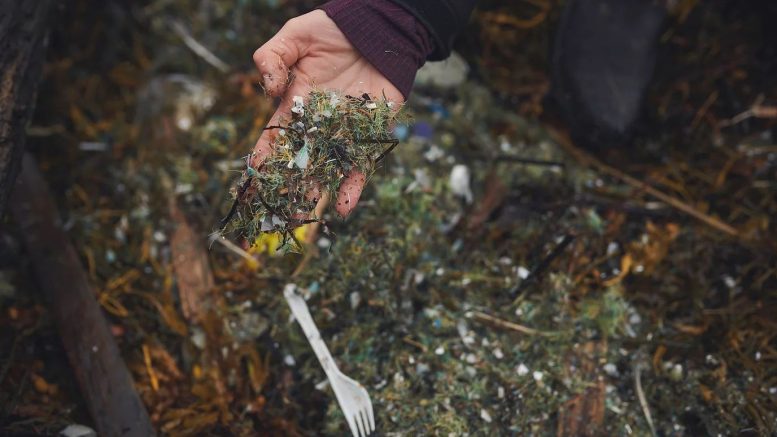The equivalent of one truckload of garbage is dumped into the ocean every minute. Currently, plastic can be found in 80 per cent of seabirds and it is estimated by the year 2050 plastic will be found in 99 per cent of them.
With statistics this staggering, the award-winning documentary Hell or Clean Water is a much-needed alarm bell for the future of the planet’s health.
The documentary follows Newfoundland and Labrador diver and former fisherman Shawn Bath on his journey to secure support and funding to clean the Newfoundland coastline.
Director Cody Westman documents Bath’s journey as creator of the Clean Harbours Initiative (CHI), whose purpose is to bring awareness to pollution in the oceans and to clean the ocean floor.
The film starts with a John F. Kennedy quote: “One person can make a difference and everyone should try.” While Bath is definitively the one diver of the CHI who began cleaning the ocean floor on his own volition after realizing he couldn’t leave the task to someone else, Westman showcases the team effort between Bath and CHI volunteers, including Bath’s girlfriend Staunene Whelan.
The opening sequence of the documentary sets up the film well. In the breakneck speed of two minutes, the “plastic nightmare” currently plaguing the world’s oceans is sufficiently summed up. To boil down this polyethylene horror story to its core, Bath remarks that he took 1,200 tires out of the harbours in one year and thousands of pounds of trash.
Of course, a significant problem with the dumping of everything from car batteries to asbestos pipes in the ocean is that these toxic materials break down and are consumed by sea creatures which are, in turn, consumed by humans.
The most frightening part of the documentary is the focus on ghost nets — fishing nets left behind by fishermen. These nets are not only trapping, harming and killing wildlife — with one of the saddest moments of the film occurring by finding a drowned orca tangled in these nets — but are breaking down and entering the food supply chain via microparticles.
The purpose of Bath’s initiative is to prove one person can make a difference. But as Bath and Whelan put their own money into the CHI, the film places a spotlight on the stress of obtaining funding from the provincial and federal governments.
The documentary does a fantastic job elaborating on prejudices or distrust between Newfoundlanders and the federal government and other organizations. In this way, there is even a history lesson to be had between the unlikely partnership of Bath and Sheryl Fink of the International Fund for Animal Welfare to secure funds for Bath to continue the CHI’s efforts.
A particularly politically frustrating moment of the film comes in the form of the Government of Canada’s Department of Fisheries and Oceans $8.3 million initiative to clean up ghost nets and the allocation of funding to local fishermen rather than the CHI, despite the fact that Bath said the government had used the CHI as an example of where the funding would be allocated.
Westman’s documentary follows Bath through this aggravating trial that only escalates as the film continues to simply secure funding for the CHI. The film, then, acts as a sort of microcosm of current pandemic struggles of government bungles and negligence.
As educative as it is aesthetically shot, Hell or Clean Water is a much-needed documentary in our current climate crisis.
The garbage is “endless,” as Bath says, but if more individuals believe they can make a difference in the world, the garbage in more than just our oceans can be cleaned up.
Hell or Clean Water will be available to watch on CBC and CBC Gem on Jan. 16.





